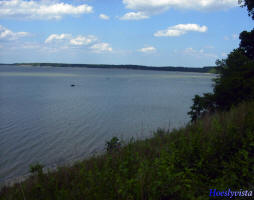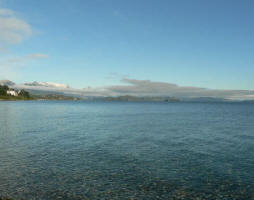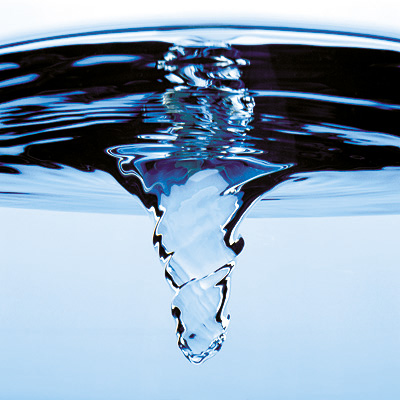 Field and Policy Initiatives for Freshwater Conservation in North Africa and Western Balkans
Field and Policy Initiatives for Freshwater Conservation in North Africa and Western Balkans
The project contributes to the delivery of the freshwater component of
the WWF Global Conservation Programme, specifically, through addressing
the priorities set out in the Mediterranean Freshwater Strategic
Framework.. It is complementary to the project implemented by WWF in
partnership with Euronatur in the western Balkan ecoregion, thanks to
the financial support of the MAVA foundation.
In parallel to the development of the Balkan proposal, an outline
for a WWF project to address the protection of freshwater biodiversity
in North Africa and tackle main policies affecting key areas in the
Mediterranean was prepared and discussed with the MAVA Foundation. In
summer 2006 an overall agreement on this outline (broader scope and
objectives) was reached.
The proposed project focuses on 3 components:
1) Morocco. This component revolves around the conservation of
freshwater ecosystems, through payments for ecosystem services (PES)
with the aim to ensure thate concrete funding schemes are in place at
the end of the project.
2) Algeria. This component is a preparatory phase for developing
the Algerian wetlands policy and includes a local coordinator position.
3) Policy. This component requires the hiring of a policy officer to focus on 2 main issues:
- European Neighbourhood Policy targeting North African countries
(Morocco and Algeria). This component aims to ensure that the European
Neighbourhood and Partnership Instrument (ENPI) brings about the best
outcomes for freshwater resources and ecosystem conservation. The ENPI
will drive support to development which could potentially impact
negatively or positively on biodiversity. The implementation of this
policy represents a significant opportunity to establish a lasting
framework which will enable more effective action on the ground for
freshwater ecosystem conservation. Timely advocacy now, by WWF, is
essential to ensure this European Union (EU) mechanism delivers
significant benefits to future biodiversity conservation.
- Hydropower, targeting the western Balkan countries, the aim of
this component is to minimize the impact on freshwater ecosystems, in
priority basins, due to hydropower infrastructure. Action by WWF in
this area is timely in the context of the developing EU approach on a
wider European integrated electricity market. In October 2005 the
Energy Community Treaty (ECT) was signed between the European Union and
9 partners of Southeast Europe. As a result of this treaty the internal
EU market for energy will be extended into the Balkan Peninsula as a
whole. This policy component will be closely interlinked to the field
work on priority basins envisaged in the WWF-Euronatur proposal already
benefiting from support by the MAVA Foundation. The options assessments
in the WWF-Euronatur project, which will be carried out in the 3
basins, will serve as the main argument in lobbying dam investors and
owners to commit to environmental sound operations.
| Project number | n/a | ||
|---|---|---|---|
| Subject(s) | ENERGY , HYDRAULICS - HYDROLOGY , INFRASTRUCTURES , NATURAL MEDIUM , POLICY-WATER POLICY AND WATER MANAGEMENT | ||
| Geographical coverage | Bosnia and Herzogowina, Croatia, Montenegro, Slovenia, Algeria, Morocco | ||
| Budget (in €) | 0 | ||
| Programme | WWF MEDPO | ||
| Web site | http://www.panda.org/about_wwf/where_we_work/africa/where/morocco/index.cfm?uProjectID=9E0759 | ||
| Objectives | Overall goal
Maximally leverage knowledge and solutions developed through field projects into development of a well-informed public policy. This approach will ensure that our efforts in the field are greatly multiplied and that our conservation gains are secure over the long term. The EU policies in this approach are seen as both an opportunity for WWF to influence key processes, and as a potential threat if we do not act in a timely manner to ensure that development funding is not incompatible with principles of sustainable development and biodiversity protection. Specific objectives 1. Set up a payment for ecosystem services (PES) scheme which supports freshwater ecosystem conservation in the Sebou Basin, Morocco. 2. Lead to the development of a National Wetlands Policy to be endorsed by the Algerian government. 3. Ensure that the European Policy Instruments contribute to the conservation of freshwater ecosystems in Morocco and Algeria and do not promote hydropower infrastructures jeopardizing the ecological integrity of priority river basins in the western Balkans. 4. Minimize the impact of hydropower dams in priority river basins in the western Balkans. |
||
| Results | The nature of the proposed work is challenging due to the heavy
political implications, big economic and financial interests involved,
and the priority given to development with respect to any other
objectives such as the environment. The magnitude of the task does not
absolve us from the responsibility for trying to tackle it in a
strategic way, using all of our strengths. Actions identified in this
proposed project are necessary, opportunities are here, and we are
confident that with MAVA Foundation’s support, the WWF Mediterranen
Programme Office's (MedPO) Freshwater Unit has the capability to
successfully lead this project.
We will rely on the following strengths to bring the project to successful completion: a) Bringing expertise and support from the WWF Network - WWF Macroeconomic Programme Office, WWF European Policy Office, WWF Dams Initiative, MedPO staff and other WWF National Offices. b) Existing field projects within the project areas that provide the foundation for policy work (e.g. Merja Zerga, Skadar, Neretva). c) Excellent partners with a good history of collaboration (Tour du Valat, Euronatur). d) Established working relationships with governmental agencies: Memorandum of Understanding (MoU) with the Sebou River. Basin Authority and Haut Commissariat aux Eaux et Forêts et à la Lutte Contre la Désertification (respectively July 2006 and January 2007). e) Ability to leverage financial support obtained from the MAVA Foundation (e.g. through possible partnership with the United Nations Development Programme (UNDP) in Algeria; WWF Austria and other WWF offices in the Balkans). f) Capacity to disseminate lessons learned throughout the Mediterranean basin, and enhance the delivery and sustainability of achievements through capacity building of non-governmental organizations (NGOs) and institutions. g) Experience in using the WWF Network and existing internal communication capacity as effective lobbying tools. |
||
| Period | [01/01/2008 - 30/06/2010] | ||
 you are not logged in
you are not logged in





